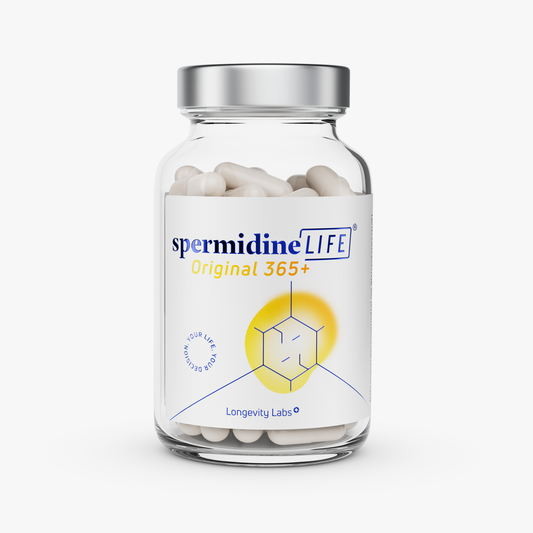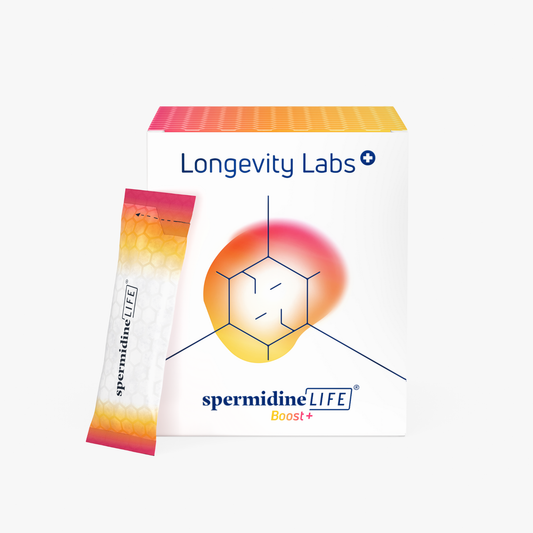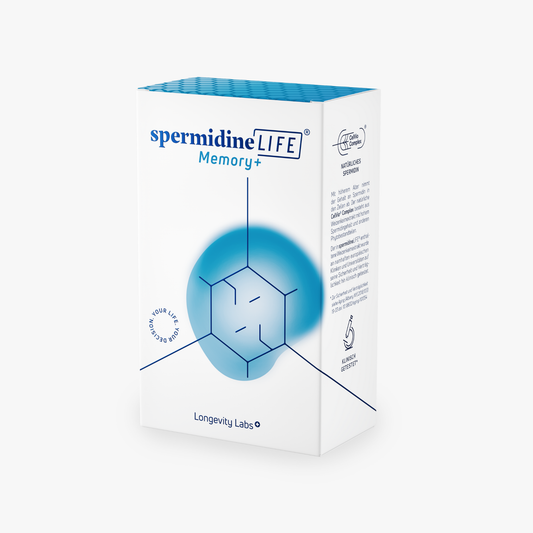
Five tips for preventing dementia
Science, TLL LongevityLabsThe risk of developing a form of dementia increases with age. Symptoms often develop gradually and remain unnoticed for a long time until an official diagnosis is made. Unfortunately, there is still no complete cure for the majority of dementias, but what we can do is reduce the risk of developing the disease in the first place! In this article you will find the best tips that you can integrate into your everyday life to strengthen your brain and prevent disease.
Since lifestyle plays a key role in the prevention of dementia, today we have compiled some tips for you on how to reduce the risk of developing dementia:
1. Healthy diet
As with so many other diseases, nutrition also plays a key role in dementia. A balanced diet is strongly linked to mental performance, especially if it can prevent other high-risk diseases such as high blood pressure and diabetes. This means in particular ensuring a healthy and balanced diet. Vegetables, fruit, whole-grain products and fish are of course much more beneficial than convenience foods, too much sugar or high-fat products. Unsaturated fatty acids lower cholesterol in blood, which also reduces the risk. Here the emphasis is again on a healthy balance. You don’t have to give up all forms of sugar and fat to maintain a fundamentally healthy diet!
2. Getting adequate exercise
Sporting activities also play a major role in the prevention of dementia. Apart from providing benefits in terms of reducing the risk factors leading to dementia such as high blood pressure, cholesterol and obesity, exercise also has a positive effect on the structure of our brain. This is because the increased release of growth hormones stimulates the networking and formation of nerve cells.
3. Avoid smoking and alcohol consumption
This point will not surprise you, but did you know that smoking not only damages your lungs, it also damages your brain! Smoking ultimately causes blood vessels to constrict and therefore the supply of oxygen to the brain cells is reduced and nerve cells are undersupplied and damaged as a result.
A too high consumption of alcohol, on the other hand, damages the brain in an indirect way. This is because a damaged liver is no longer able to properly clear out the toxins in our blood. The accumulation of these toxins in our body can lead to nerve cell damage.
4. Social contact
Whether it’s with strangers, friends, or family, interacting with others greatly strengthens our cognitive connections. Social activities are like a non-strenuous workout for our brain during which our speech, memory, and emotional center are engaged and thus remain active. We retain nerve cells that we use frequently for longer because the connections between the cells are regularly strengthened. It has been confirmed that loneliness often accelerates the progression of dementia because less information is passed between nerve cells causing them to be lost more quickly. These activities don’t have to be complicated. Whether it’s a quick chat with the neighbors, taking part in a museum tour, or even making regular phone calls – as humans we are highly dependent on our social environment not just for our mental health!
5. Brain training
Last but not least, any kind of mental activity, be it in the form of crosswords, puzzles, music, books or board games, strengthens our synapses and keeps our brain cells active. Even small challenges can have a big effect on our brain. Try walking down the stairs backwards or brushing your teeth with your non-dominant hand. Doing this will activate and strengthen your nerve cells!






